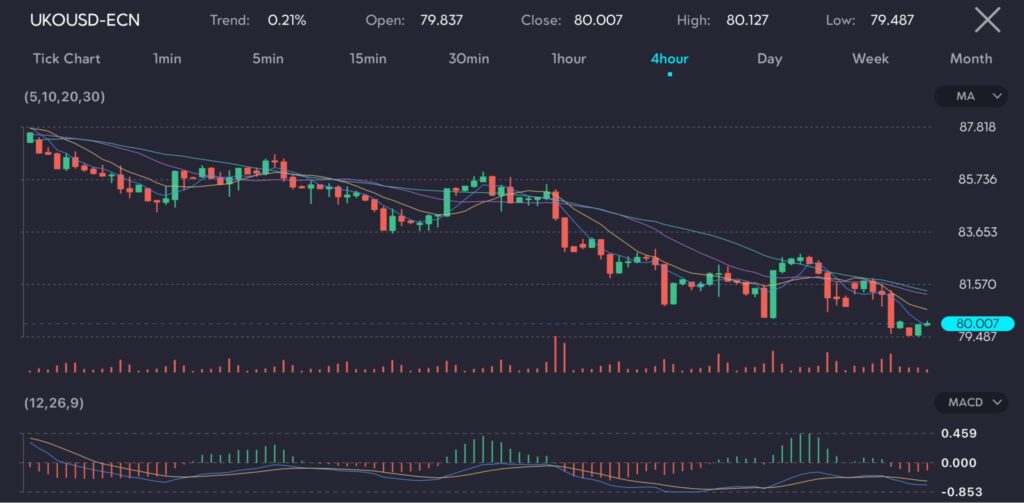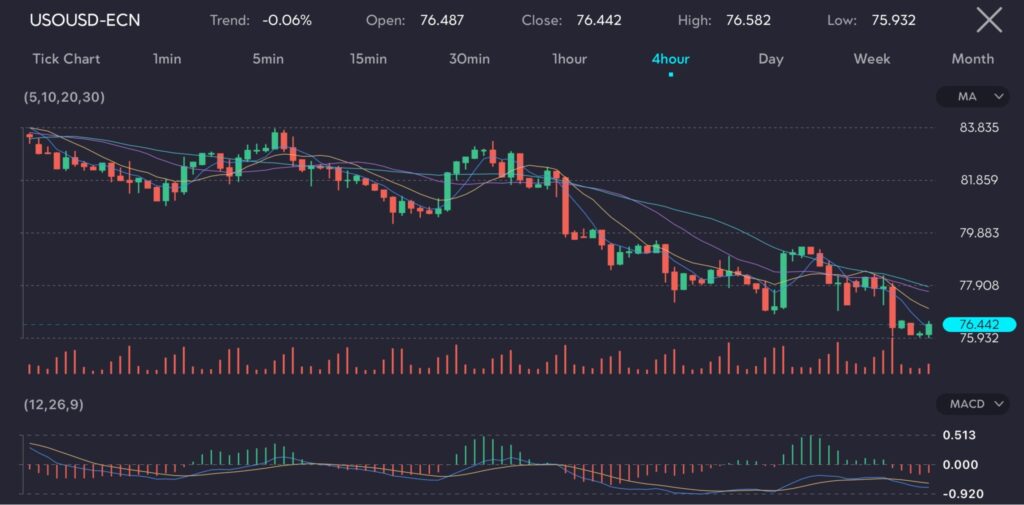Key points:
- Oil prices fell due to concerns over Chinese demand and diminishing fears of conflict in the Middle East.
- Brent crude oil dropped to $79.78 a barrel, while WTI fell to $75.67 a barrel.
- Weak economic data from China and limited policy support expectations are weighing on market sentiment.
Oil prices continued the downward trajectory, extending losses as market participants reacted to disappointing economic news from China and reduced concerns about potential conflict escalation in the Middle East.
Picture: Oil prices dip China demand concerns, as observed on the VT Markets app.
The recent economic data from China has been a significant drag on oil prices. The manufacturing activity of China likely contracted for the third consecutive month in July. This persistent weakness in the manufacturing sector is a clear signal of softer demand for commodities, including oil.
Attention is now on the upcoming Politburo meeting, which is expected to take place this week. Although there is some anticipation of economic policy support, expectations remain tempered after the recent Third Plenum reiterated existing policies without introducing significant new measures.
Middle east tensions eased
The recent conflict between Israel and Hezbollah in the Israeli-occupied Golan Heights initially raised concerns about potential disruptions in oil supply.
However, the calculated response by Israel, aimed at avoiding a full-scale war, along with US diplomatic efforts to de-escalate the situation, have collectively eased market fears. This reduced the geopolitical risk premium that had previously supported oil prices.
Market forecast for the energy sector
Given the current bearish sentiment, traders might consider strategies that hedge against further declines in oil prices, while also being prepared to capitalise on any short-term rallies resulting from geopolitical tensions or positive economic surprises.
The current market environment suggests potential volatility driven by geopolitical developments and economic data releases. Monitoring the outcomes of the Politburo meeting in China will be crucial. Additionally, traders should stay alert to any shifts in US foreign policy that could impact oil supply dynamics.











